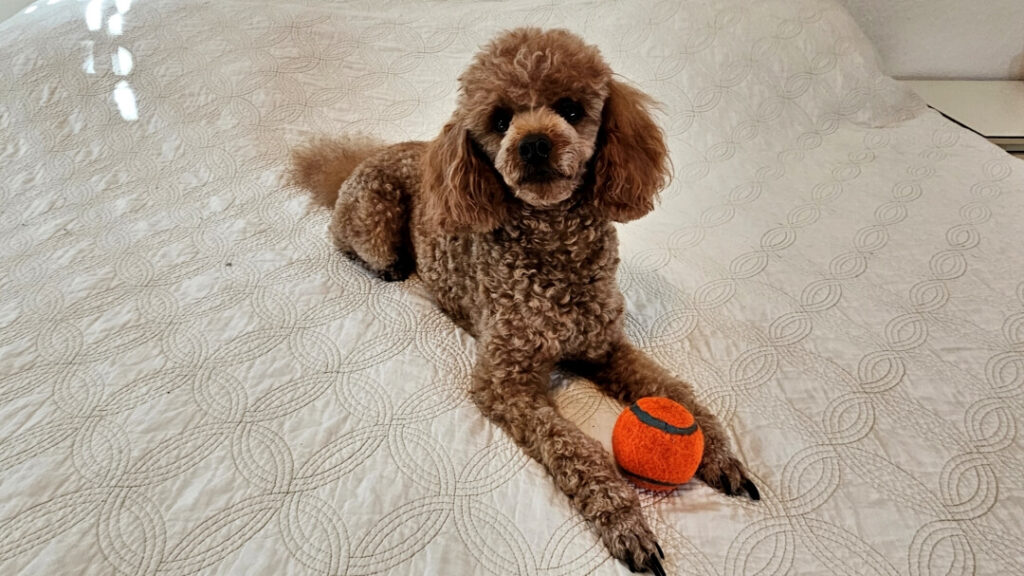Introduction
Owning a Miniature Poodle is a rewarding experience filled with joy, companionship, and endless love. However, ensuring that your furry friend is both happy and well-behaved takes more than just affection. It requires consistent training and dedicated care.
In this blog post, we’ll explore why these elements are crucial for the well-being of your Miniature Poodle. From understanding their unique traits to implementing effective training techniques, we’ll guide you through everything you need to know to keep your Miniature Poodle content and thriving.
Understanding the Miniature Poodle
Miniature Poodles are a breed known for their intelligence, agility, and charming personalities. Standing about 10-15 inches tall and weighing between 10-15 pounds, these small dogs pack a lot of personality into their petite frames. They have curly, hypoallergenic coats that come in a variety of colors, making them a popular choice for people with allergies.
Their intelligence is one of their most defining traits. Miniature Poodles are quick learners and often excel in obedience training. They are also highly social animals that thrive on human interaction.
However, this breed can be sensitive and may develop anxiety if not properly trained and socialized. Understanding these characteristics will help you approach their training and care with the right mindset.
Additionally, Miniature Poodles are known for their playful and energetic nature. They require regular physical activity to keep their bodies and minds stimulated. This means that consistent training not only helps with behavior but also provides them with the mental and physical exercise they need.
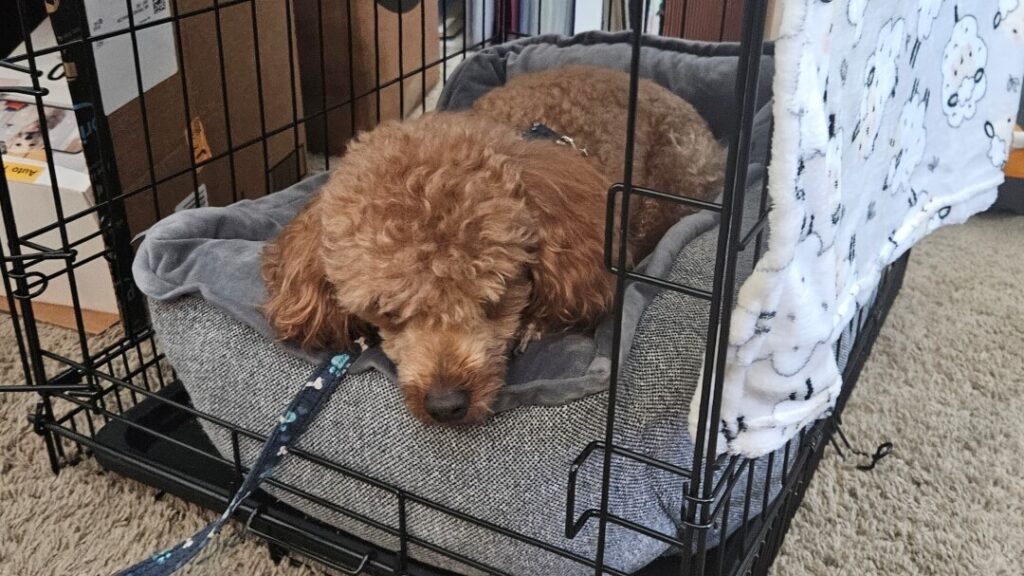
The Benefits of Consistent Training
Consistent training is essential for the overall happiness and well-being of your Miniature Poodle. Training provides structure and boundaries, which are crucial for a dog’s sense of security. When a Miniature Poodle understands what is expected of them, they are less likely to exhibit behavioral issues such as excessive barking, chewing, or aggression.
Training also strengthens the bond between you and your pet. It creates opportunities for positive interactions, which build trust and mutual respect. A well-trained Miniature Poodle is more likely to be a well-adjusted pet that can adapt to different environments and situations.
Furthermore, consistent training can significantly reduce stress and anxiety in your Miniature Poodle. Dogs that are left untrained often feel confused and unsure of themselves, leading to anxiety-driven behaviors. By providing clear guidelines and consistent reinforcement, you help your Miniature Poodle feel more confident and secure.
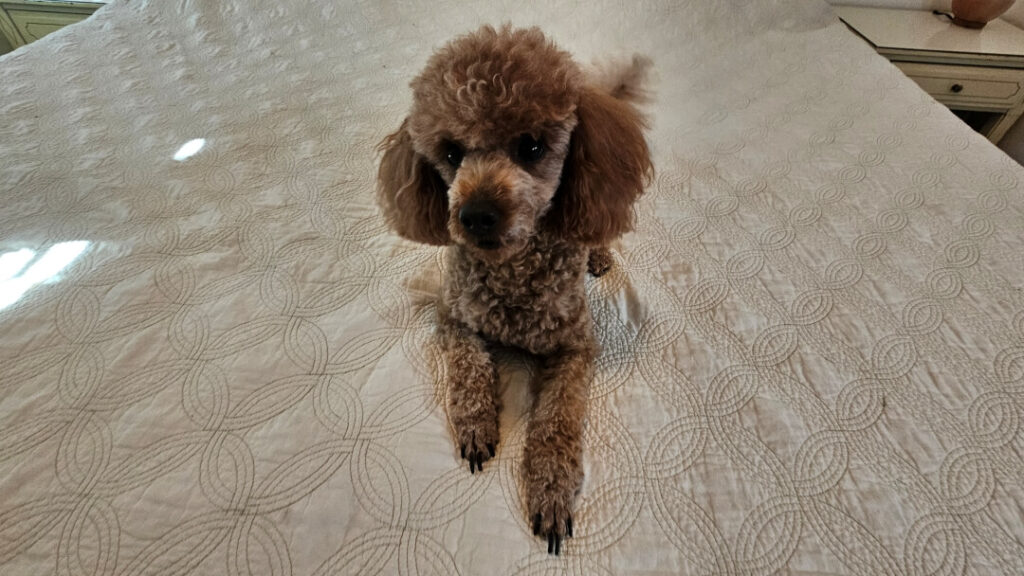
Essential Training Techniques
Training a Miniature Poodle involves a combination of obedience, socialization, and housebreaking techniques. Start with basic commands such as “sit,” “stay,” and “come.” These commands form the foundation for more advanced training and help establish your role as the leader.
Socialization is equally important. Expose your Miniature Poodle to different people, animals, and environments from a young age. This helps them become well-rounded and less fearful of new experiences. Regular socialization can prevent common issues like aggression and anxiety around strangers.
Housebreaking is another crucial aspect of training. Consistency is key here. Take your Miniature Poodle outside at regular intervals and praise them when they relieve themselves in the appropriate spot. Crate training can also be an effective method for housebreaking, as it teaches your dog to hold their bladder for longer periods.
Daily Care for a Happy Poodle
Daily care routines are just as important as training when it comes to maintaining a happy and healthy Miniature Poodle. Grooming is a significant part of this routine. Their curly coats require regular brushing to prevent matting and tangling. Regular baths and professional grooming every few weeks will keep their coat in top condition.
Exercise is another vital component. Miniature Poodles are energetic dogs that need daily walks, playtime, and mental stimulation. Activities like fetch, agility training, and puzzle toys can help keep them engaged and healthy.
Diet also plays a crucial role in your Miniature Poodle’s well-being. Provide a balanced diet that meets their nutritional needs. Consult your vet for recommendations on the best food options for your dog. Always ensure they have access to fresh water.
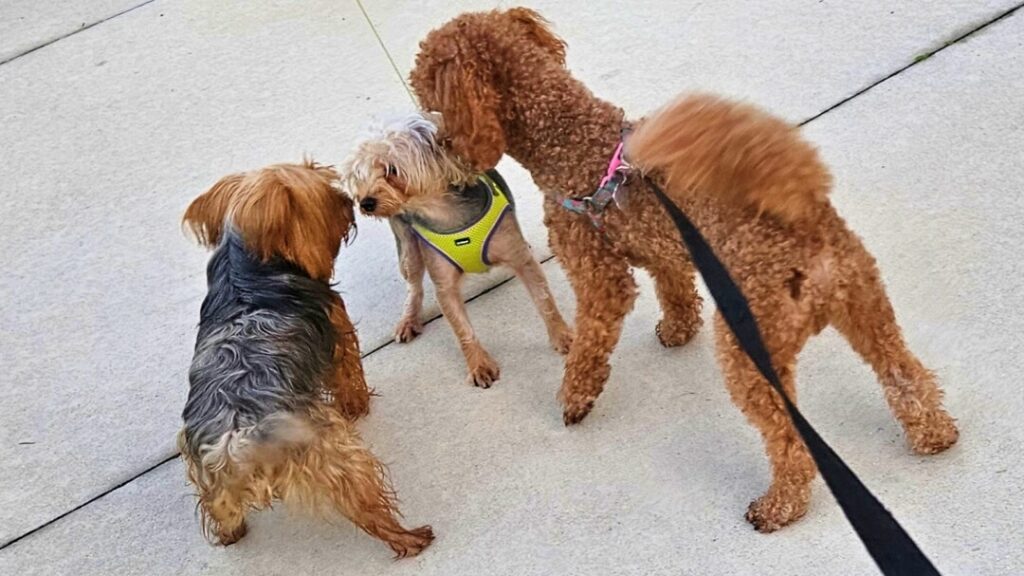
The Role of Positive Reinforcement
Positive reinforcement is a highly effective training method for Miniature Poodles. This approach involves rewarding your dog for displaying desired behaviors, making them more likely to repeat those actions. Rewards can include treats, praise, or playtime.
Consistency is crucial when using positive reinforcement. Always reward good behavior immediately to help your Miniature Poodle make the connection between the action and the reward. Over time, you can phase out treats and rely more on verbal praise and affection.
Avoid punishment-based training methods, as they can lead to fear and anxiety in your dog. Instead, focus on encouraging good behavior and redirecting unwanted actions. This approach fosters a positive learning environment and strengthens the bond between you and your pet.
Real-Life Success Stories
Many Miniature Poodle owners have seen remarkable improvements in their pets’ behavior and happiness through consistent training and care. Take Sarah, for example.
She adopted a Miniature Poodle named Max who was initially anxious and prone to barking. Through regular training sessions and positive reinforcement, Max became a well-behaved and confident dog.
Another success story is from Mike, who struggled with housebreaking his Miniature Poodle, Bella.
By following a consistent routine and using crate training, Bella quickly learned where and when to relieve herself. Now, she’s a happy and well-adjusted member of the family.
These real-life examples highlight the impact that consistent training and dedicated care can have on a Miniature Poodle’s overall well-being and happiness.
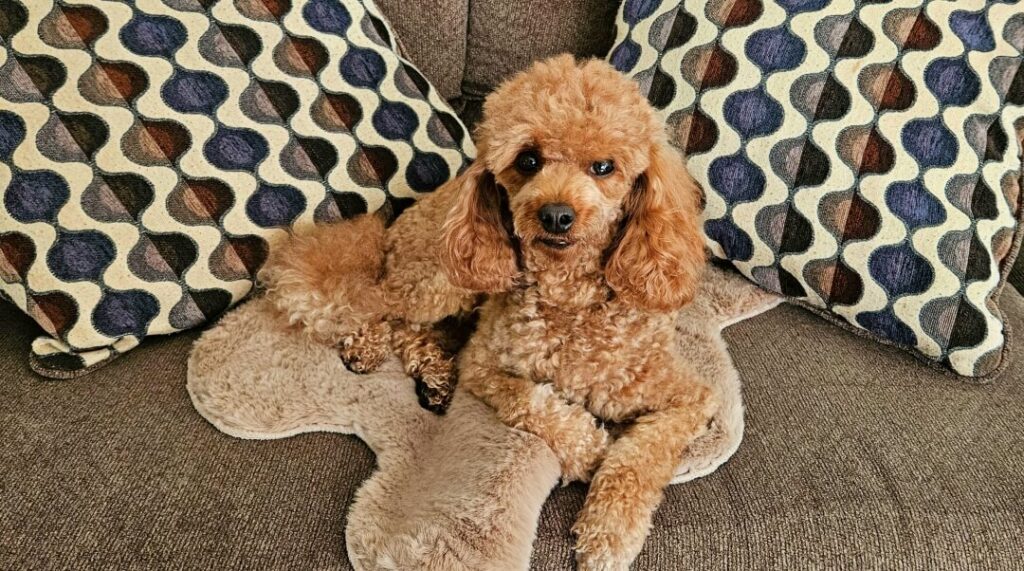
Conclusion
In summary, the secret to a happy Miniature Poodle lies in consistent training and dedicated care. Understanding their unique characteristics, implementing effective training techniques, and maintaining a daily care routine are crucial steps in ensuring your Miniature Poodle leads a happy and fulfilling life.
Consistent training strengthens your bond, reduces stress and anxiety, and helps your pet become a well-adjusted member of your family. By focusing on positive reinforcement and providing regular grooming, exercise, and a balanced diet, you set the foundation for a joyful and healthy Miniature Poodle.
Remember, every effort you put into training and caring for your Miniature Poodle will be rewarded with their unwavering loyalty and companionship. For personalized advice and support, consider booking a session with a professional dog trainer who can guide you through the process and help you achieve the best results for your furry friend.
Happy training, and here’s to a joyful life with your Miniature Poodle!

